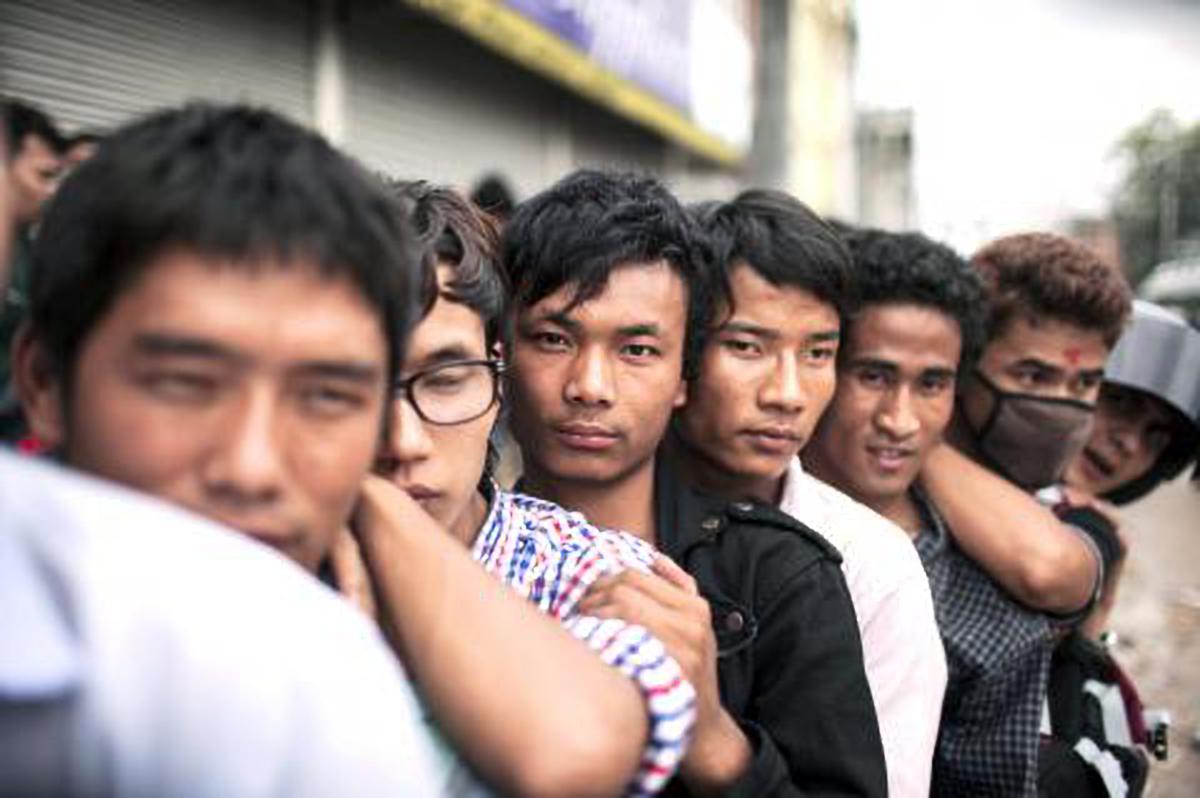Finding a Job: Practical Advice
Youth unemployment is an exacerbating problem in Nepal. Nepal’s population is young with one third of all people in the age group of 15-29 years. According to ILO research, each year more than 300,000 young Nepali enter the job market and only 5% of them succeed in finding work. University graduates in rural areas and those with lower education in urban areas are especially struggling to find work that match their qualifications.
Young people seeking to enter the job market face many challenges. Many young Nepali don’t know how and where to look for jobs and there is a lack of guidance and employment services from the government. In addition, entry level jobs are scarce and many employers give preference to older people with experience to fill positions. Furthermore, where jobs are available, there is often a skills mismatch as job seekers do not have the right skills for available vacancies. There is a wide gap between what the labor market requires and the subjects taught in schools, universities, and in technical and vocational centres. Unable to find entry-level jobs in the fields that they have studied, many educated young people have to settle for occupations that they are overqualified for, often against a small salary.
For many young people, labor migration seems the only way out with more than 1,500 Nepali leaving for foreign employment every day. My uncle, brother, sister, and many friends are all studying and working abroad. But what about those who want to stay and work in Nepal? I do. As a twenty-two year old, I have been exploring the job market in Nepal for the last 5 years and have learned various lessons:
Pursue internships and part-time jobs to gain relevant professional experience and skills: Work experience is one of the most important things employers are looking for as certain soft skills cannot be learned at school, college or university. Taking a part-time job or pursuing an internship during or after studying allows you to gain some first time work experience that you can later leverage when you enter the labor market as a full-time employee. After finishing high-school, I started teaching dance classes at a Montessori school. I was thrilled, because I have always been passionate about dancing. For some months I enjoyed it, but working with children below five was really hard and after two years I quit because the job did not give me enough professional satisfaction. However, even though the dance teacher job did not turn out to be for me, it did help me to become more responsible and strengthen my communication skills. When I started university and was applying for a new job, I leveraged this experience, became a more competitive candidate and successfully landed my job as an English teacher based on my previous work with children.

Invest in building relationships and leverage your network to find a job: Engaging in different activities while in college or university or while you are looking for jobs will allow you to meet people from different fields and build up a network of professional contacts. I heard about the English teacher’s job from a fellow student in college. He recommended me, because I was a class representative and students trusted me. In fact, in Nepal there is a discrepancy between the way people look for jobs and the way they get jobs. Most young people search for job advertisements to find employment, yet in practice the majority enter the labor market by asking friends and family. According to a survey conducted by ILO among employers, a third of respondents when looking for staff, relied on social networks too. while being selected through a transparent and competitive recruitment process is always preferable, the reality is that networking is an important strategy to find and be considered for jobs in Nepal.
Be prepared before applying: It is important to prepare yourself well when applying for jobs. Make sure to read the job advertisement well to determine whether you qualify for a job or not. Also, when applying, make sure to check what documents you need to submit such as a cover letter explaining your motivation for the job and your cv detailing your qualifications and experience in order to apply. Before submitting any documents, double check that there are no spelling mistakes and that you have included all relevant information such as contact information. It is always good to ask someone else who has work experience to review your application. If you you are selected for an interview, make sure to prepare yourself by going over the job criteria, your motivation of the job and what makes you uniquely qualified for the job and make sure to be on time for your interview. Throughout the process of applying, remember that finding a job is challenging and takes time, so it is important not to give up if your job application has not been successful. Keep trying!
Be flexible and open-minded: It is important to be flexible and open minded. You may not immediately land your dream job and earn a reasonable salary. Instead you may have to settle for a job that may not meet all your expectations. In Nepal, the average wage for employed youth is less than NPR 12,000 and the salaries of youth with informal, short-term jobs are even lower. In my first job in handicrafts production, my handicrafts often got rejected for minor mistakes. It was disheartening when after 2 hours of making one woolen bag, I only got NPR 5 for it and barely made NPR 1000 per month. Yet I have always wanted to be independent and earn my own money without having to rely only on my family to support me, so I accepted the job despite earning very little.
Persevere even when faced with challenges: If you decided to work next to your studies, be prepared that having to do both is not easy especially not for women who often juggle responsibilities at home and family too. Now that I am a college student pursuing a degree in social work, I have to go to the field to do a lot of research, while also conducting my work. Under such circumstances, it is easy to feel like quitting, but a frequent change of jobs does not look good on your cv. In the long run, you will be glad you persevered as you will be able to leverage your experience with future employers to demonstrate your ability to perform and multi-task under challenging circumstances.
While the government needs to focus more on job creation for young people in Nepal, waiting around for a miracle to happen won't yield much results. Instead if you are pro-active and determined and start gaining basic work experience early, your chances of finding an entry-job will be much higher.

Tara Bohara
Nesfield College
BA in Humanities & Social Science
The views and opinions expressed in this blog are those of the author and do not represent the views of Bikas Udhyami.
